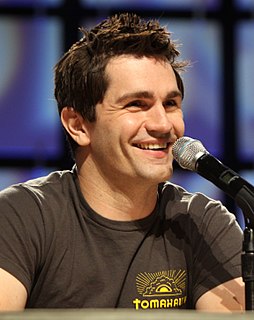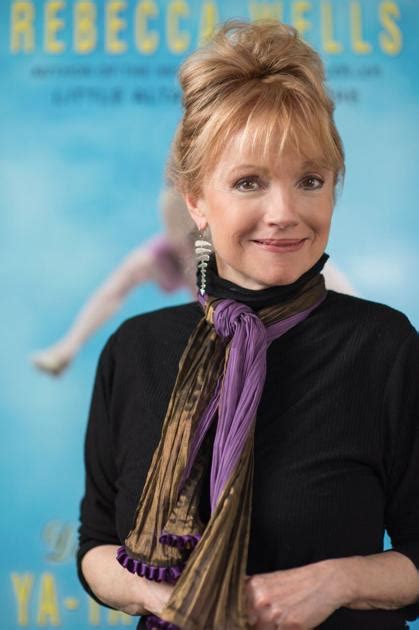A Quote by Esther Perel
When we seek the gaze of another, it isn't always our partner we're turning away from, but the person we have ourselves become.
Related Quotes
In wishing to know ourselves fully, we must forget our quest for gain and seek only completion. At a certain point in our development, we no longer even seek to become Mystic, Magister, Sorcerer, or Witch: we seek only our own perfection in the wholeness of our Will, in the joining of light with dark and strength with love. We are varied and gorgeous yet pure of heart. Our aim is this: to know ourselves and to know the world.
Before His gaze all falsehood melts away. This encounter with Him, as it burns us, transforms and frees us, allowing us to become truly ourselves... His gaze, the touch of His heart heals us through an undeniably painful transformation "as through fire". But it is a blessed pain, in which the holy power of His love sears through us like a flame, enabling us to become totally ourselves and thus totally of God.
But how can we love someone if we don't like him? Easy-we do it to ourselves all the time. We don't always have tender, comfortable feelings about ourselves; sometimes we feel foolish, stupid, asinine, or wicked. But we always love ourselves: we always seek our own good. Indeed, we feel dislike toward ourselves, we berate ourselves, precisely because we love ourselves; because we care about our good, we are impatient with our bad.
A soulmate is an ongoing connection with another individual that the soul picks up again in various times and places over lifetimes. We are attracted to another person at a soul level not because that person is our unique complement, but because by being with that individual, we are somehow provided with an impetus to become whole ourselves.
When something goes wrong in our lives we often ask ourselves "Who was present?" and if there was ever a singular person that was present in whatever the event was when something changed our lives. If we can't get beyond that event, we become obsessed with it or it changed our life in a way that we can't make sense of. We often seek out that person because that was the last time our lives made sense.
There is in us an instinct for newness, for renewal, for a liberation of creative power. We seek to awaken in ourselves a force which really changes our lives from within. And yet the same instinct tells us that this change is a recovery of that which is deepest, most original, most personal in ourselves. To be born again is not to become somebody else, but to become ourselves.
When we sit, we open our own treasure house. Rather than do this, however, most of us first seek to find the treasures another person can provide. We calculate their value to us. When we approach relationships in this manner, we are coming as beggars, seeing the other as a source of supply. When we can enter a relationship with our treasure house already open, there is no end to the wonders we can find, both within and between ourselves and another.
Dancing of late years has been degraded to the narrow limits and low professionalism of mere mechanical proficiency, associated with the most frivolous... phases of the stage. But this day is fading...We are turning our gaze inward, learning to seek there the divine sources of the dance, to the end that it may flower into new and more glorious forms of beauty and wealth
When we choose to be parents, we accept another human being as part of ourselves, and a large part of our emotional selves will stay with that person as long as we live. From that time on, there will be another person on this earth whose orbit around us will affect us as surely as the moon affects the tides, and affect us in some ways more deeply than anyone else can. Our children are extensions of ourselves.
Self-respect is often mistaken for arrogance when in reality it is the opposite. When we can recognize all our good qualities as well as our faults with neutrality, we can start to appreciate ourselves as we would a dear friend and experience the comfortable inner glow of respect. To embrace the journey towards our full potential we need to become our own loving teacher and coach. Spurring ourselves on to become better human beings we develop true regard for ourselves and our life will become sacred.
When we seek happiness through accumulation, either outside of ourselves-from other people, relationships, or material goods-or from our own self-development, we are missing the essential point. In either case we are trying to find completion. But according to Buddhism, such a strategy is doomed. Completion comes not from adding another piece to ourselves but from surrendering our ideas of perfection.



































